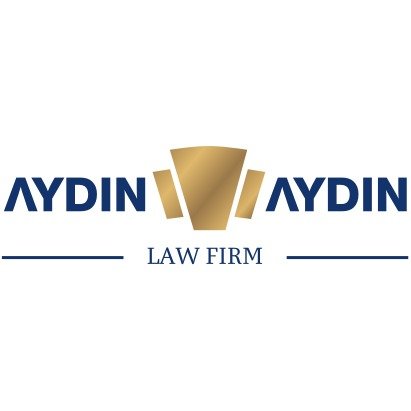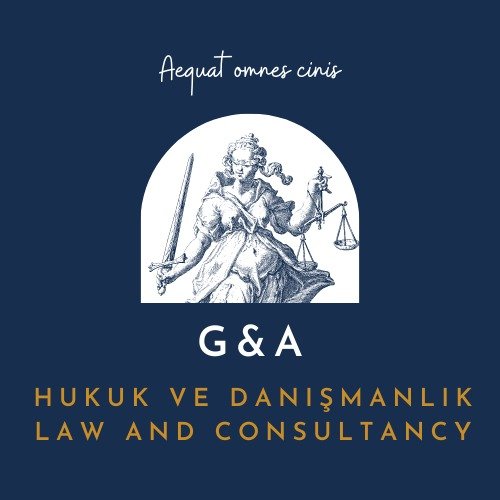Best Accidents & Injuries Lawyers in Ankara
Share your needs with us, get contacted by law firms.
Free. Takes 2 min.
List of the best lawyers in Ankara, Turkey
Turkey Accidents & Injuries Legal Articles
Browse our 3 legal articles about Accidents & Injuries in Turkey written by expert lawyers.
- What to Do After a Serious Car Accident in Turkey: A Guide
- Most accident and injury claims in Turkey are based on fault under the Turkish Code of Obligations, with strict rules for traffic and workplace accidents. General time limit is 2 years from when you learn of the damage and who caused it, and 10 years from the date of the... Read more →
- Workplace Accidents in Turkey: Protecting Your Business and Your Employees
- Turkey has one of the highest rates of workplace accidents globally, with nearly 2,000 work-related fatalities reported in 2024 alone. Workplace safety is not just a legal obligation; it's a critical factor in the success and sustainability of your business. As a business owner, understanding the legal framework, financial implications,... Read more →
- Your Rights After a Traffic Accident in Turkey
- Traffic accidents are an unfortunate reality anywhere in the world, including Turkey. With over 300,000 injuries and thousands of fatalities yearly, understanding your rights and proper procedures following an accident is crucial. Whether you're a resident or a visitor, this page will help you navigate the aftermath of a traffic... Read more →
About Accidents & Injuries Law in Ankara, Turkey
Accidents & Injuries Law, also known as Torts Law, in Ankara, Turkey, spans a wide array of incidents such as road accidents, work-related injuries, medical malpractice, and slips or falls. These laws are designed to protect the rights of individuals who have sustained injuries due to the negligence of another party, ensuring they receive proper compensation for their pain, suffering, and financial losses.
Why You May Need a Lawyer
If you have suffered an injury due to another person or entity's negligence or intentional misconduct, you may find it beneficial to consult with a lawyer. Legal professionals can help you navigate through complex legal systems, assist in negotiations with insurance companies, or represent you in court if necessary. A lawyer can also assist in estimating the right amount of compensation you deserve for your injuries, medical bills, loss of earnings, and other damages.
Local Laws Overview
In Ankara, Turkey, an essential element of Tort Law is proving the defendant's fault. To win a lawsuit, the plaintiff must demonstrate that the defendant was negligent, and this negligence resulted in the accident or injury. Additionally, the plaintiff has a duty to mitigate their damages - this means they must take reasonable steps to minimize the impact of the injury. Finally, it's important to note that Turkey has a strict statute of limitations for filing personal injury suits, which is typically two years from the date of injury or from when the injury was recognized.
Frequently Asked Questions
What do I do immediately after an accident?
Immediately after an accident, you should prioritize getting medical attention if necessary, reporting the accident to the police, and documenting the scene with photographs or videos if possible. You should also gather witness contact information.
How much compensation can I claim?
The amount of compensation you can claim largely depends on the severity of your injury, medical costs, loss of income, and the extent of the defendant's negligence. It is best to consult with a lawyer for a more accurate estimate.
How long do I have to file a claim?
The time limit, or "statute of limitations," for personal injury cases in Turkey is two years from the date of accident or injury.
Will my case go to court?
While many personal injury claims are settled out of court, some cases may proceed to court if the parties cannot agree on a fair settlement, or if the defendant disputes their liability.
What if I’m partly at fault?
In Turkish regulations, even if you're partially at fault for the accident, you may still be able to claim damages. However, your compensation could be reduced by your degree of fault.
Additional Resources
You can find valuable information and resources from the Turkish Bar Association and local government websites. Websites and forums for expats living in Ankara may also provide valuable insights and recommendations.
Next Steps
If you believe you have a valid personal injury claim, the next step is to consult with a legal professional as soon as possible. Remember, the statute of limitations plays a crucial role in your ability to seek compensation. A reputable lawyer can help you navigate the complexities of Turkish Tort Law, negotiate with insurance companies, and ensure your rights are protected throughout the process.
Lawzana helps you find the best lawyers and law firms in Ankara through a curated and pre-screened list of qualified legal professionals. Our platform offers rankings and detailed profiles of attorneys and law firms, allowing you to compare based on practice areas, including Accidents & Injuries, experience, and client feedback.
Each profile includes a description of the firm's areas of practice, client reviews, team members and partners, year of establishment, spoken languages, office locations, contact information, social media presence, and any published articles or resources. Most firms on our platform speak English and are experienced in both local and international legal matters.
Get a quote from top-rated law firms in Ankara, Turkey — quickly, securely, and without unnecessary hassle.
Disclaimer:
The information provided on this page is for general informational purposes only and does not constitute legal advice. While we strive to ensure the accuracy and relevance of the content, legal information may change over time, and interpretations of the law can vary. You should always consult with a qualified legal professional for advice specific to your situation.
We disclaim all liability for actions taken or not taken based on the content of this page. If you believe any information is incorrect or outdated, please contact us, and we will review and update it where appropriate.
Browse accidents & injuries law firms by service in Ankara, Turkey
Ankara, Turkey Attorneys in related practice areas.










